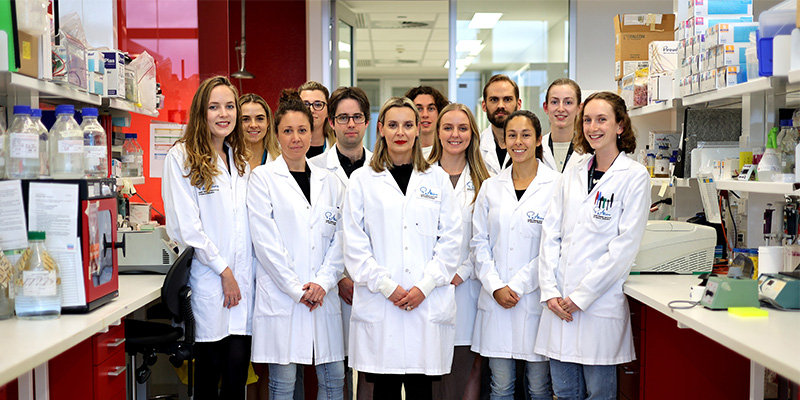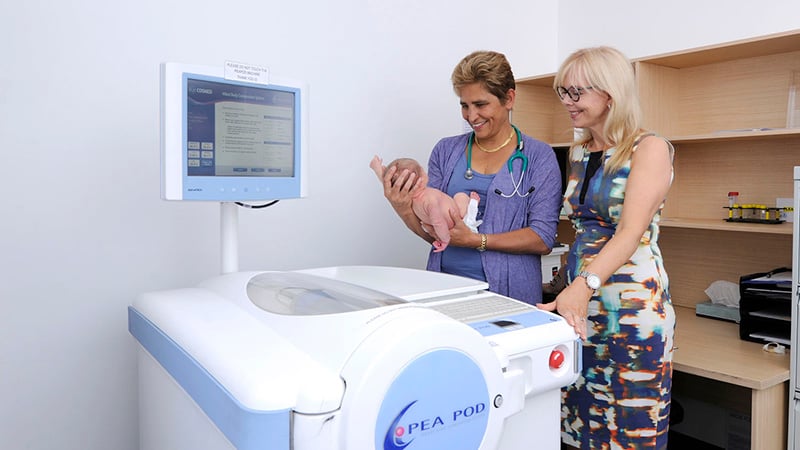Search
Showing results for "Professor"
Research
Glycaemic outcomes in Australasian children and adults with Type 1 Diabetes: failure to meet targets across the age spectrumThe goal of therapy in Type 1 diabetes is to achieve optimal glycaemic targets and reduce complications. Robust data representing glycaemic outcomes across the lifespan are lacking in Australasia.
Research
Effects of dietary fat and protein on glucoregulatory hormones in adolescents and young adults with type 1 diabetesDietary fat and protein impact postprandial hyperglycaemia in people with type 1 diabetes, but the underlying mechanisms are poorly understood. Glucoregulatory hormones are also known to modulate gastric emptying and may contribute to this effect.
Research
Continuous subcutaneous insulin infusion alters microRNA expression and glycaemic variability in children with type 1 diabetesTo determine whether continuous subcutaneous insulin infusion (CSII) vs. multiple daily injections (MDI) therapy from near-diagnosis of type 1 diabetes is associated with reduced glycaemic variability (GV) and altered microRNA (miRNAs) expression.
Research
An Assessment of Clinical Continuous Glucose Monitoring Targets for Older and High-Risk People Living with Type 1 DiabetesTo assess relationships between continuous glucose monitoring (CGM) time in range (TIR), 70-180 mg/dL, time below range (TBR), <70 mg/dL, time above range (TAR), >180 mg/dL, and glucose coefficient of variation (CV) in relation to currently recommended clinical CGM targets for older people, which recommend reduced TIR and TBR targets relative to the general type 1 diabetes population.
Research
The diabetes management experiences questionnaire: Psychometric validation among adults with type 1 diabetesTo examine the psychometric properties of the Diabetes Management Experiences Questionnaire (DME-Q). Adapted from the validated Glucose Monitoring Experiences Questionnaire, the DME-Q captures satisfaction with diabetes management irrespective of treatment modalities.
Research
Six Months of Hybrid Closed-Loop Versus Manual Insulin Delivery With Fingerprick Blood Glucose Monitoring in Adults With Type 1 Diabetes: A Randomized, Controlled TrialTo investigate glycemic and psychosocial outcomes with hybrid closed-loop (HCL) versus user-determined insulin dosing with multiple daily injections (MDI) or insulin pump (i.e., standard therapy for most adults with type 1 diabetes). Adults with type 1 diabetes using MDI or insulin pump without continuous glucose monitoring (CGM) were randomized to 26 weeks of HCL (Medtronic 670G) or continuation of current therapy.

News & Events
Prestigious fellowship for pioneering researcherAleksandra Filipovska has been elected a Fellow of the Australian Academy of Health and Medical Sciences.

News & Events
Leadership needed to Close the Gap: expertEmbrace Co-Director Professor Helen Milroy AM has highlighted the need for Aboriginal and Torres Strait Islander leadership in driving health and wellbeing reform priorities, as Gayaa Dhuwi was mentioned in the Close the Gap report.

News & Events
Early ORIGINS: Disease prevention starts with the early yearsThe Joondalup Health Campus and The Kids are investigating how childhood and adult-onset diseases can be prevented during foetal development and in the early years of life.

News & Events
AICES Study explainedProfessor Andrew Whitehouse and his research collaborators in the UK and Melbourne have teamed up to write a great article on the recent findings of the AICES (Australian Infant Communication and Engagement Study) for The Conversation.
